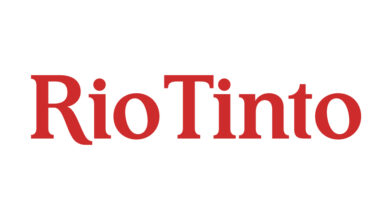BearingPoint: Mobility’s Shift to Electric Vehicles and Personalized Services to Transform the Energy Landscape

BearingPoint research reveals that companies in the utilities sector must become more customer-centric and reimagine their operating models.
AMSTERDAM–(BUSINESS WIRE)–#advisory–Management and technology consultancy BearingPoint’s latest study implies that the future of mobility will profoundly affect the utilities sector. The “Destination 2030, Who’s in the driving seat for the future of mobility?” study identified three trends that will drive mobility in the coming years:
1.) every journey will become a personalized experience
2.) climate neutrality will be non-negotiable – from the cradle to the grave
3.) users will consume services rather than own vehicles.
These trends also apply to the utilities sector. As mobility becomes personalized, energy does too. Products and services in the utilities sector will become more customer-centric and move away from one-size-fits-all offerings, requiring a transformation of business models.
Tremendous opportunities for companies in the utilities sector
“The mobility ecosystem of the future presents a tremendous opportunity for companies in the utilities sector. But to realize the opportunities that are even out there right now, companies must be willing to rethink and transform their business models. Profound change is taking place in the mobility space, and energy providers should see themselves as much more than an outlet: they can be involved in nearly every aspect of the mobility experience. Their only limit is their vision, and we can help them see what’s out there,” said Marion Schulte, global leader Utilities at BearingPoint.
According to the study, energy companies will have to change their operating models to allow more individualized offerings, such as discounted prices to charge cars late at night and guarantees for commuters for door-to-door routes. Personalized digital services may include parking spot finders and food orders/pickups at charging/fuelling stations. There is also a high potential for up and cross-selling and diversifying the business model to include charging infrastructure, co-working spaces, entertainment, shopping opportunities, car-sharing options and even fitness gyms. The study foresees small charging and fuelling points integrated with shopping and dining experiences.
There will also be a focus on available charging points in rural areas as well as on nationwide but small-scale infrastructure investments. It will be essential for energy companies to acquire long-term contracts with large property owners. There will also be the possibility to build mobility hubs (EV charging, H2 filling stations, convenience stores, restrooms) that will be in direct competition with stations from oil and gas companies.
Rising electricity demand and grid expansion will also need more optimized capacities using load management, V2x and Power2x technologies.
For more details, please read the full article here: https://www.bearingpoint.com/en/insights-events/insights/destination-2030/
About BearingPoint
BearingPoint is an independent management and technology consultancy with European roots and a global reach. The company operates in three business units: Consulting, Products, and Capital. Consulting covers the advisory business with a clear focus on selected business areas. Products provides IP-driven digital assets and managed services for business-critical processes. Capital delivers M&A and transaction services.
BearingPoint’s clients include many of the world’s leading companies and organizations. The firm has a global consulting network with more than 13,000 people and supports clients in over 70 countries, engaging with them to achieve measurable and sustainable success.
For more information, please visit:
Homepage: www.bearingpoint.com
LinkedIn: www.linkedin.com/company/bearingpoint
Twitter: @BearingPoint
Contacts
Press contact
Alexander Bock
Global Manager Communications
Telephone: +49 89 540338029
E-Mail: [email protected]





